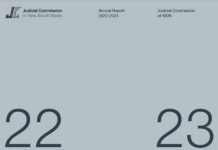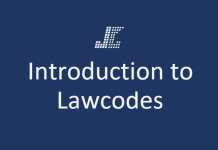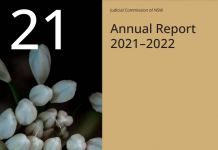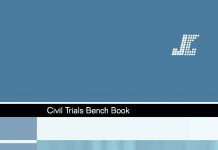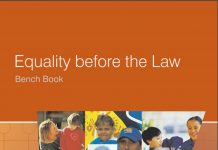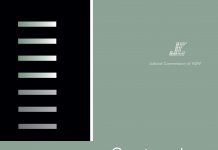Update 40, July 2023
[6-000] Recent sexual assault law on JIRS
The following recent cases have been added:
Evidence
- R v Clarke [2023] NSWCCA 123 — Evidence Act 1995, ss 97A, 101(2) — child sexual offences — cross-admissibility of tendency evidence for three complainants — judge erred in considering s 97A(5) factors to rebut s 97A(2) presumption of significant probative value in absence of “exceptional circumstances” — circumstances must be more than just sufficient to enliven s 97A(5) factors to be “exceptional”
- PJ v R [2023] NSWCCA 105 — Criminal Appeal Act 1912, s 5F(3) — appeal of “interlocutory judgment or order” — child sexual offences — judge refused leave for applicant to recall child witnesses who gave pre-recorded evidence under Criminal Procedure Act 1986, Sch 2, cl 87 — refusal of leave not appellable under s 5F(3) — no jurisdiction to hear appeal
- Murray v R [2023] NSWCCA 79 — Evidence — assessing reliability — child sexual assault — complainant socially disadvantaged, deprived and behaviourally troubled — system of individual justice relies on jury assessing witness’ evidence, not based on assumed social or material worth — no class of child witness inherently incapable of truthfulness or accuracy — verdict not unreasonable or unsupported by evidence
Sentencing
- Kramer v R [2023] NSWCCA 152 — Sentencing — Crown appeal — Crimes Act 1900, s 61I — sexual intercourse without consent — Community Correction Order (CCO) imposed — penile-vaginal intercourse offence committed with knowledge of non-consent within context of other consensual sexual activity — not open to judge to characterise offending as just above low range — CCO manifestly inadequate — observations regarding social media apps, the pandemic and sexual consent
- Giacometti v R [2023] NSWCCA 150 — Sentencing — sexual and violent offences perpetrated against partner — applicant relied upon psychiatric/psychological reports with inconsistencies in histories provided by applicant — judge failed to take into account relevant mitigatory matters and erred in rejecting parts of subjective case — while open to judge to regard applicant’s inconsistent hearsay to experts with scepticism, rejection of part of the evidence did not justify rejection of almost entire subjective case
- AC v R [2023] NSWCCA 133 — Sentencing — five-judge bench — Crimes (Sentencing Procedure) Act 1999 (C(SP) Act), s 25AA(2) — standard non-parole period (SNPP) at time of offence applies for child sexual offences — C(SP) Act, Sch 2, cl 91 — retrospective application of increased SNPP for indecent assault of child under 10 (Crimes Act 1900, s 61M(2) (rep)) — increased SNPP does not have retrospective application — scope of s 25AA(2), in clear language, not limited by earlier enacted transitional provision — GL v R [2022] NSWCCA 202 correctly decided
- Richards v R [2023] NSWCCA 107 — Sentencing — historical child sexual offences — good character — no offending from 1986 — judge’s assessment of applicant’s character of “little weight” open — conviction-free period distinct from factual finding that offender has not reoffended — delay in complaint — judge did not err in considering delay — delay result of child sexual offending’s nature and not a mitigating factor
- BDO v The Queen [2023] HCA 16 — Criminal responsibility — sexual offences allegedly committed by child between 10 and 14 — Criminal Code (Qld), s 29(2) — presumption of incapacity of child between 10 and 14 rebuttable by evidence of capacity to know they ought not do act — presumption of incapacity under s 29(2) not equivalent to moral wrongness required by common law (RP v The Queen (2016) 259 CLR 641) but is informed by it
- DC v R [2023] NSWCCA 82 — Sentencing — Crimes (Sentencing Procedure) Act 1999 (C(SP) Act), s 25AA(2); sch 2, cl 68 — applicable standard non-parole periods (SNPPs) for child sexual offences — transitional provisions — Crimes Act 1900, s 66C(2) — aggravated sexual intercourse with child aged 10 to 14 committed before 1 January 2015 — judge erred by applying SNPP which commenced 29 June 2015: C(SP) Act, s 25AA(2); sch 2, cl 68 — sentencing judge led into error by parties — counsel have responsibility to properly assist court
- DPP (NSW) v TH [2023] NSWCCA 81 — Sentencing — child sexual offences — Crown appeal — judge erred imposing indicative sentences below proper range — aggregate sentence manifestly inadequate — indicative sentences can signal error in aggregate sentences: Lee v R [2020] NSWCCA 244 — Crimes (Sentencing Procedure) Act 1999, s 25AA(3) — Crown to identify trauma of sexual abuse on child victim where not self-evident from facts — relevance of uncharged acts in sentencing — DPP (NSW) v TH [2023] NSWCCA 81
Procedure
- Commissioner of Police, NSW Police Force v TM [2023] NSWCA 75 — Child Protection (Offenders Registration) Act 2000, ss 3(3), 3A(2), (5) — Crimes Act 1900, s 91H(2) — possess child abuse material — juvenile offender — judge erred by declaring respondent’s entry on Child Protection Register erroneous on basis exception in s 3A(2) applied — meaning of “registrable person” and “arising from the same incident” in s 3A — possessing child abuse material involving actual children is an offence committed against those children
- Gardiner v R [2023] NSWCCA 89 — Procedure — judge-alone trials — child sexual assault — judge erred by making adverse findings on applicant’s credibility based on his demeanour in dock and insignificant evidentiary point, without notice — Criminal Procedure Act 1996, s 133 — obligation to give reasons in judge-alone trials — reasons did not disclose how demeanour affected credit — applicant denied procedural fairness
Appeals
- Barney v R [2023] NSWCCA 85 — Criminal Appeal Act 1912, s 6(1) — unreasonable verdicts — child sexual offences — guilty verdicts not inconsistent with acquittals — plausible explanation for verdicts specific to the evidence — complainant’s credibility and general reliability of her other evidence not damaged — observations on credibility and reliability
Directions
- Rassi v R [2023] NSWCCA 119 — Directions — Criminal Procedure Act 1986, s 161A — tendency evidence — standard of proof — charged and uncharged acts of varying seriousness adduced as tendency evidence — judge’s directions did not invite circular reasoning
- Rahman v R [2021] NSWCCA 290 — Directions — right to silence — applicant answered questions in electronically recorded interview until allegations of offending raised — judge failed to adequately direct jury on applicant’s right to silence — right to silence only referred to in summing up — where evidence is led by Crown of applicant’s right to silence, conviction ordinarily set aside where no direction given
- Park v R [2023] NSWCCA 71 — Directions — sexual offences — accused gave evidence — judge erred in giving incomplete Liberato v The Queen (1985) 159 CLR 507 direction — Criminal Procedure Act 1986, s 294(2)(c) — judge erred in directing jury that delay in complaint not relevant to credibility — insufficient evidence to justify direction — omission of some alternative counts from indictment liable to confuse — retrial ordered


